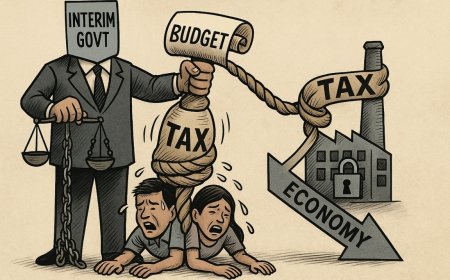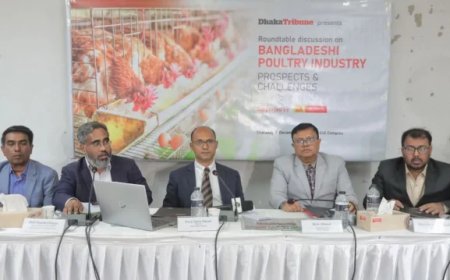The Reformed Cabinet That Bangladesh Deserves
Ministers Are More Than Ceremonial Figureheads

Chief Adviser Muhammad Yunus’s recent announcement that general elections will be held in February 2026 has revived a familiar public image: a group of newly elected parliamentarians, dressed in fresh attire, taking their oaths as ministers. This naturally raises several questions—who are these individuals, what are their qualifications, and why should they be chosen? What narratives will surround them? In light of the dramatic political transition of August 5, 2024, it is fair to ask: what philosophy and culture will guide the future council of ministers in running the state?
This question brings to mind a childhood memory. Jolish Kha, a village laborer, once confided to his fellow workers that the rizq (livelihood) of an entire community depended on a particular blessed individual living among them. When pressed to reveal the person’s identity, and after much speculation by his peers, Jolish finally admitted with confidence, “Yes, it is me.” Unlike him, however, former ruler Sheikh Hasina once portrayed herself as the ultimate provider. In 2017, she casually remarked at a press conference that when her sister Rehana asked if she could feed an extra one million Rohingya refugees, she replied that feeding them was no problem since she already fed 160 million Bangladeshis.
But the reality was starkly different. The now-banned Awami League chief, her party leaders, and their loyalists acted not as custodians of public wealth but as plunderers, enriching themselves at the nation’s expense. In a democracy, power is meant to rest with the people, with the president, prime minister, and parliamentarians serving as their trustees, and the cabinet and bureaucrats functioning as public servants. In post-revolution Bangladesh, as MPs join the cabinet, they will face constant public scrutiny and criticism—provided democracy is genuinely restored and functional.
Both ruling and opposition parties ahead of the next election can take proactive steps to strengthen parliamentary practice and competitive politics. They might prepare and present lists of capable leaders and professionals who could serve as ministers, introducing them to the public in advance. While parties are not compelled to do so, those that present a clear prime ministerial or presidential candidate, along with prospective ministerial faces, will gain an advantage in the electoral contest.
The next government, however, will inherit daunting challenges—not only the legacy of authoritarianism but also the weight of public expectations and the urgency of reform. No ready-made model exists for governance that satisfies a restless new generation. MPs may often struggle to anticipate the consequences of their decisions, making prudent leadership all the more essential. Gone are the days when empty political rhetoric could pacify citizens; young Bangladeshis will not wait indefinitely for change. Nor will it be easy for the next ruling party to evade or delay the reform programs outlined by the interim government. Bureaucratic inertia and red tape may further complicate progress.
For this reason, political parties must act with foresight. They need to select the right people for the right positions, demonstrate courage, and craft strategies that balance the workings of state machinery with the demands of public welfare. Without such preparation, a new cabinet risks falling into the same lethargy and bureaucratic captivity as its predecessors.
An effective approach would be for parties to create professional, merit-based panels of prospective ministers, ensuring they are capable of handling critical portfolios—from national security and economic management to public rights, justice, foreign policy, and development planning. These choices require serious groundwork, not improvisation.
Ultimately, as Bangladesh looks to reform its old system and realize the promise of a new political order, public curiosity about the next generation of ministers is both inevitable and justified. The simple question remains: who will take charge of the nation’s key ministries, and will they rise to the demands of this new era? If parties disclose their choices in advance, it will empower citizens to make more informed decisions when casting their votes.
What's Your Reaction?



















































































